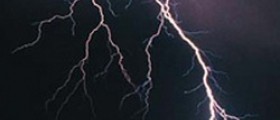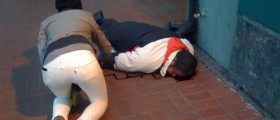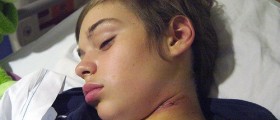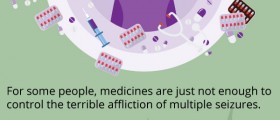
What exactly is myoclonus and why does it occur?
Myoclonus is a term that is used to describe involuntary and quick twitching of a muscle or a group of muscles. Sudden muscle contractions usually cause myoclonic twitches, and while contractions are called positive myoclonus, relaxations are referred to as negative myoclonus. These jerks are most commonly present while people sleep, but the fact is that they may also indicate some kind of a neurological disorder. Alzheimer’s disease, Parkinson’s disease, multiple sclerosis, lupus, serotonin toxicity, as well as some forms of epilepsy are only some of disorders of nervous system that have this symptom in common. Besides this, myoclonus may appear as a response to some infection, injury to the spinal cord or head, brain tumor, chemical poisoning, liver or kidney damage, or even as a side effect of some medications. A very coomon form of myoclonus are hiccups, when the diaphragm is affected. However, these are all considered to be examples of normal myoclonus and they are not a reason for concern.
How to recognize myoclonus epilepsy and can it be treated?
Epilepsy is a disorder of the nervous system in which the abnormal electrical activity in the brain is responsible for seizures. One form of epilepsy is called myoclonus epilepsy, and this form is associated with involuntary twitching of the muscles. Some of the symptoms and signs that are present in people with this condition are fever, headache, hemorrhagic eye wounds, irregular muscle twitches, muscle contractions and myoclonic attacks. Dementia may also be present, as well as papilledema, which is a swelling of the optic nerve because of the increased intracranial pressure. In people with epilepsy, myoclonic seizures tend to cause movements that are abnormal, but they are present at the same time on both sides of the body.
In cases of progressive myoclonus epilepsy, the symptoms are also related to difficulties in speaking and walking. There are three forms of this type of epilepsy identified, and each has different symptoms. Even though it is rare, this disease may be fatal. As for the medications that can be used in the treatment of myoclonus, they usually include tranquilizers and anticonvulsants, although some cases may require surgery. Even though this condition is rarely life threatening, it may cause very severe and debilitating impairments. In the greatest majority of the cases, this condition cannot be cured, and the patients have to deal with it for the rest of their life.

















Your thoughts on this
Loading...